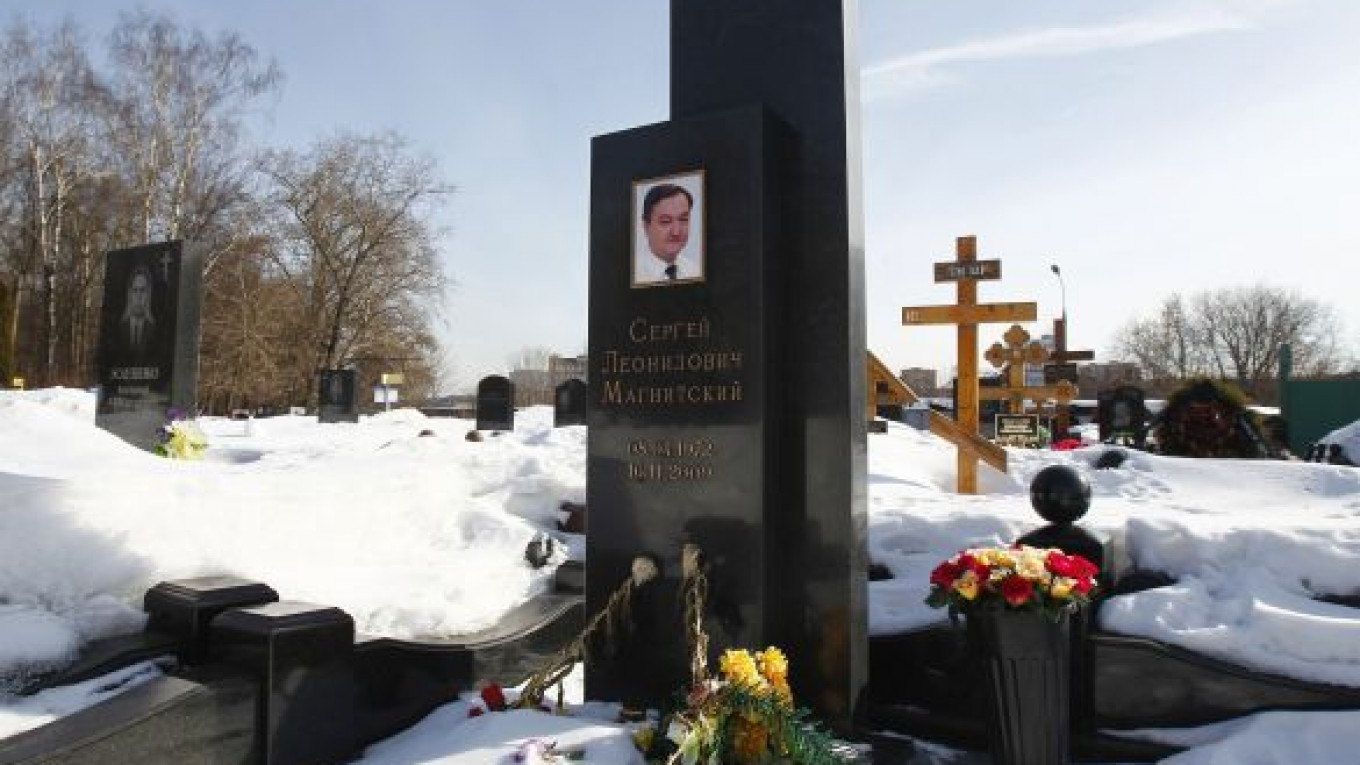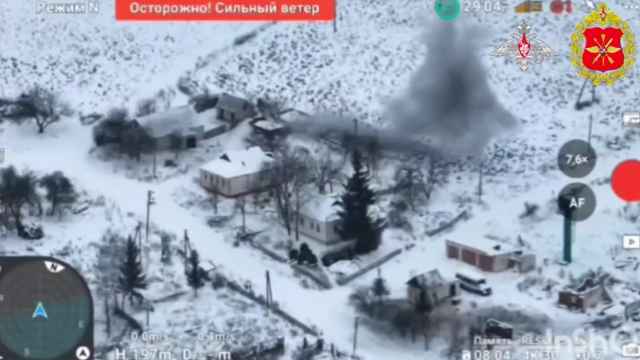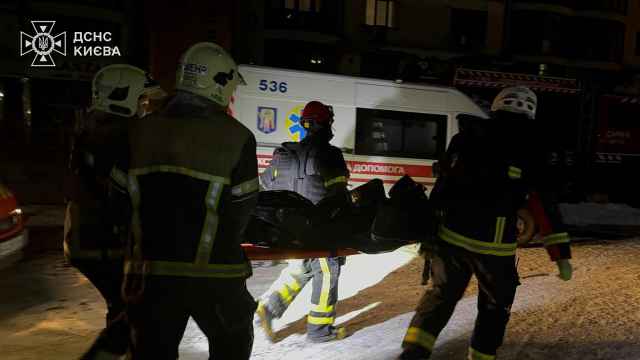A Moscow court on Monday postponed the trial of dead lawyer Sergei Magnitsky, who accused law enforcement authorities of massive corruption and whose case sparked a dispute between Washington and Moscow.
Magnitsky was jailed in 2008 on charges of tax evasion. The charges came after he alleged that officials and organized criminals conspired to claim $230 million in tax rebates.
He died in prison the next year of untreated pancreatitis while awaiting trial. The Kremlin Human Rights Council said in 2011 that Magnitsky had been repeatedly beaten and deliberately denied medical treatment.
The posthumous trial for Magnitsky was to open Monday, but court-appointed defense attorneys Nikolai Gerasimov and Kirill Goncharov petitioned for the trial to be put off until May so that they could study the case files. Judge Igor Alisov postponed the hearings until March 22.
Lawyers representing Magnitsky's family have refused to take part in the proceedings, calling them a mockery of justice and "blasphemy."
The Supreme Court ruled in 2011 that posthumous trials are allowed, with the intention of letting relatives clear their loved ones' names. In Magnitsky's case, prosecutors refiled charges even though family members said they did not want another trial.
In a statement released by Hermitage Capital, the investment fund that once employed Magnitsky, the lawyer's widow, Natalya Zharikova, called on the parties in the trial to refuse to participate.
"I think that if any of its participants have a conscience — and this is key not only in human morality but also in Russian criminal law — they have a duty to refuse to participate in this blasphemy," she said.
Gerasimov and Goncharov told reporters at preliminary hearings earlier this month that as members of the Moscow Bar Association they had no choice but to take part in the trial once they were appointed to represent the dead lawyer, otherwise they would lose their licenses to practice.
Magnitsky's death in 2009 attracted wide international attention. The United States last year enacted a law named after Magnitsky that allows sanctions against Russians considered human rights violators. Russia retaliated by banning Americans adopting Russian children.
A Message from The Moscow Times:
Dear readers,
We are facing unprecedented challenges. Russia's Prosecutor General's Office has designated The Moscow Times as an "undesirable" organization, criminalizing our work and putting our staff at risk of prosecution. This follows our earlier unjust labeling as a "foreign agent."
These actions are direct attempts to silence independent journalism in Russia. The authorities claim our work "discredits the decisions of the Russian leadership." We see things differently: we strive to provide accurate, unbiased reporting on Russia.
We, the journalists of The Moscow Times, refuse to be silenced. But to continue our work, we need your help.
Your support, no matter how small, makes a world of difference. If you can, please support us monthly starting from just $2. It's quick to set up, and every contribution makes a significant impact.
By supporting The Moscow Times, you're defending open, independent journalism in the face of repression. Thank you for standing with us.
Remind me later.






